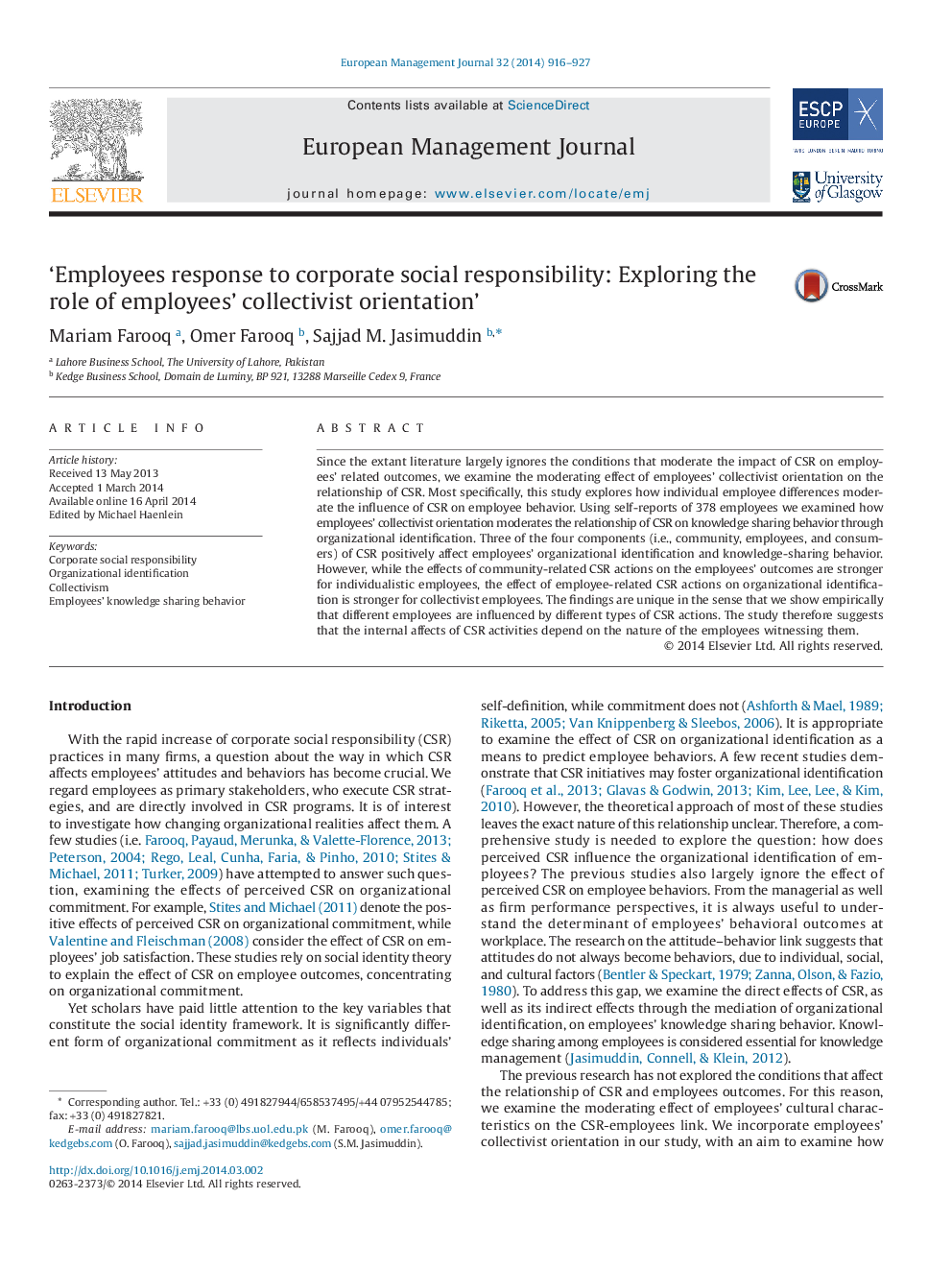| Article ID | Journal | Published Year | Pages | File Type |
|---|---|---|---|---|
| 1014926 | European Management Journal | 2014 | 12 Pages |
•This study examines the effect of perceived corporate social responsibility (CSR) on employees’ attitudes and behaviors in South Asia.•Using the social identity theory, this research suggests that CSR positively influences employees’ organizational identification and knowledge-sharing behavior.•Taking collectivism as a moderator, the effects of community- and environment-related CSR actions on organizational identification are stronger for individualistic employees.•The effect of consumer-related CSR actions on organizational identification does not depend on the individual cultural factor, collectivism.•The paper helps managers of multinational corporations in formulating effective CSR strategy while managing global workforce.
Since the extant literature largely ignores the conditions that moderate the impact of CSR on employees’ related outcomes, we examine the moderating effect of employees’ collectivist orientation on the relationship of CSR. Most specifically, this study explores how individual employee differences moderate the influence of CSR on employee behavior. Using self-reports of 378 employees we examined how employees’ collectivist orientation moderates the relationship of CSR on knowledge sharing behavior through organizational identification. Three of the four components (i.e., community, employees, and consumers) of CSR positively affect employees’ organizational identification and knowledge-sharing behavior. However, while the effects of community-related CSR actions on the employees’ outcomes are stronger for individualistic employees, the effect of employee-related CSR actions on organizational identification is stronger for collectivist employees. The findings are unique in the sense that we show empirically that different employees are influenced by different types of CSR actions. The study therefore suggests that the internal affects of CSR activities depend on the nature of the employees witnessing them.
